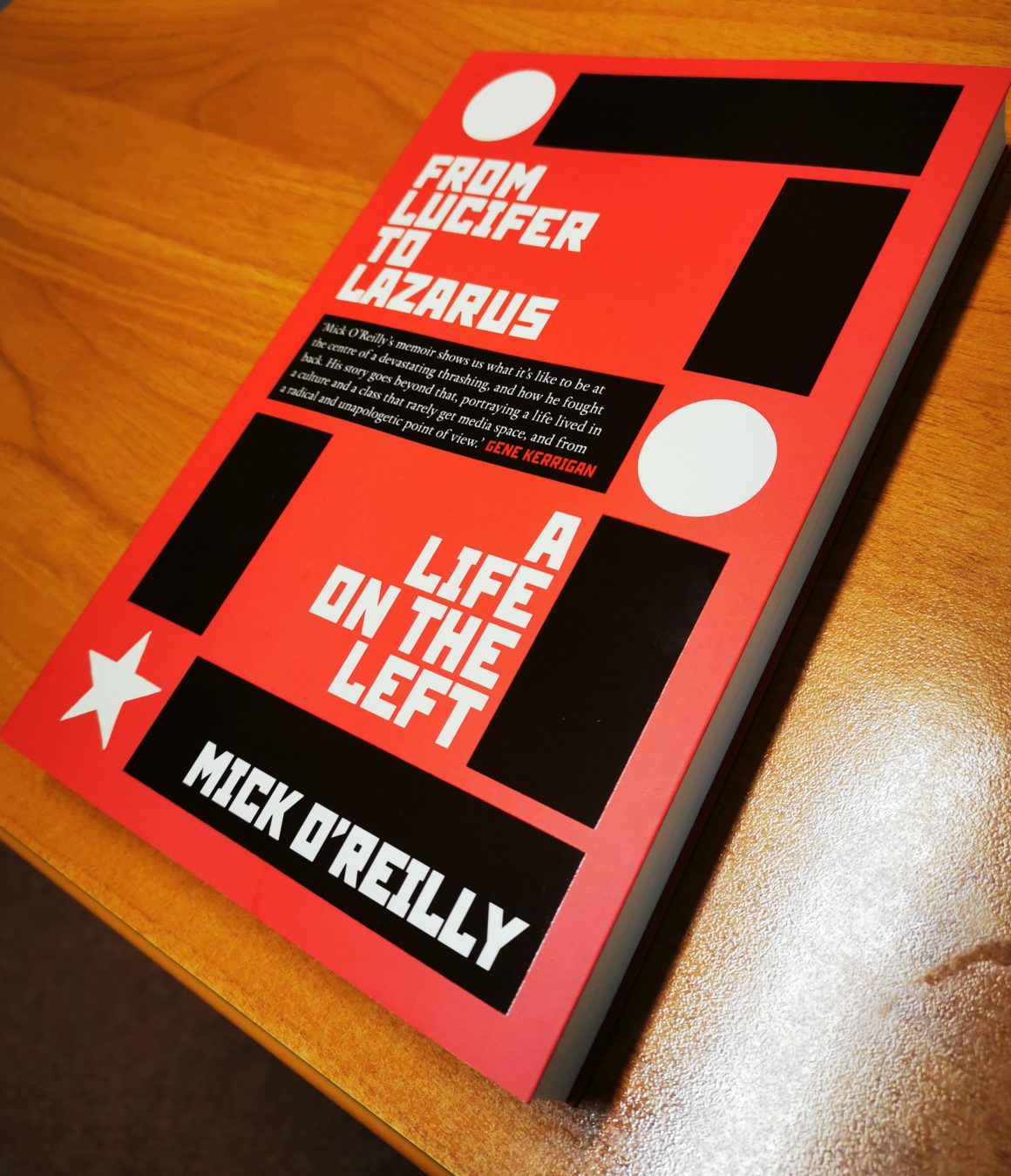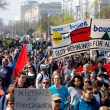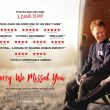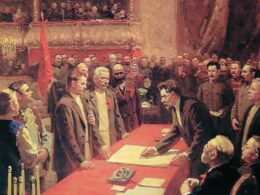From Lucifer to Lazarus – A Life on the Left
By Mick O’Reilly
Published by Lilliput, 2019
Reviewed by Michael O’Brien
This autobiography by the former Irish Regional Secretary of the Amalgamated Transport and General Workers’ Union (ATGWU, since renamed Unite) is, among other things, an important window into a period of the Irish workers’ movement going back to the 1960s and 1970s.
Born in the Liberties in 1946 and reared in Ballyfermot, Mick O’Reilly didn’t finish primary school but factory life in Ireland and Britain schooled him in politics and trade union militancy. Most of his early working life was in car assembly plants which were epicentres of militancy in this period. His time in Fiat in Dublin in the early 1970s is when we get a glimpse of the confident shop steward movement that was capable of fighting for pay rises, but also of taking lightning action in support of victimised colleagues, as well as political strike action – for example, in response to Bloody Sunday in early 1972.
The other dimension of Mick’s early life was his politics. He was a member of the Communist Party of Ireland (CPI) which, though small, developed an important base among shop stewards and in the trade union officialdom at that time. However, a faultline for Mick and others developed with the Soviet invasion of Czechoslovakia in 1968 to crush the “Prague Spring.” This was opposed by him and the CPI as a whole but, over subsequent years, its key leader, Mícheál Ó Ríordáin, turned the party back into a more uncritical mouthpiece for the Stalinist bureaucracy.
O’Reilly’s own analysis of those developments points in a ‘Eurocommunist’ direction, which was the reformist political adaption later in the ‘70s of a number of western European Communist parties. Mick himself later joined the Labour Party, was active in Labour Left and sat on its Administrative Council in the 1980s as a representative of the ATGWU, alongside Socialist Party member Joe Higgins when Militant (the Socialist Party’s predecessor) worked inside Labour.
Militant comrades were progressively expelled from the Labour Party from 1989 onwards. The Labour Left effectively collapsed by the late ‘80s as a meaningful internal opposition and, by the time of the special coalition conference convened after the 1992 ‘Spring tide’ general election which saw Labour achieving a then record 33 seats, Mick O’Reilly – along with other then Labour Lefts like Michael D Higgins, Tommy Broughan and Emmett Stagg – supported coalition with Fianna Fáil, something he acknowledges as a mistake in this book.
This mistake was, in a sense, a byproduct of Mick’s old Communist Party politics. Interestingly, the CPI at the time also supported the coming together of Fianna Fáil and Labour as they viewed Fianna Fáil as an objectively ‘progressive’ wing of the capitalist establishment. It is the Irish version of the Stalinist stages theory that supported further indigenous capitalist industrial development in Ireland as a necessary stage before socialism could come on to the agenda.
For readers of this journal, the parts dealing with social partnership will resonate most. Starting with the “Programme for National Recovery” in 1987, the free collective bargaining that prevailed previously and necessitated more rank-and-file and shop steward activity were replaced with tri-annual agreements negotiated at the top between the government, ICTU and IBEC. Describing the impact on the rank and file, O’Reilly says:
“Neglect your negotiating skills and you lose them. Muscles atrophy from lack of use. When you do this for a whole generation of trade unionists, you end up with a movement with a head and no body. And that’s what happened to the trade union movement; we’ve lost a culture and lore of how things are done.”
He, likewise, pinpoints the Industrial Relations Act 1990, which was introduced by Bertie Ahern as an obstacle to organising in hostile employments and an impediment to effective strike action.
Mick O’Reilly and the ATGWU stood out for their consistent opposition to partnership deals and were supportive of the various ad hoc campaigns by rank-and-file trade unionists and lefts to organise rejection. There was at least one deal, ‘Partnership 2000’, when the majority of organised workers in the state voted ‘No’ but such was the distorting effect of the electoral college system used by ICTU to decide on the matter that the deal was passed. That could have been the cue for the ATGWU and other unions whose members rejected the deal to break with ICTU and form an alliance to fight for real pay rises and revive shop floor activity.
Despite not taking this route, Mick O’Reilly was undeniably a thorn in the side of union officialdom on both sides of the Irish Sea. His efforts to bring the breakaway train drivers’ union ILDA, led by Brendan Ogle, which split from SIPTU, into the ATGWU excited the rage of the SIPTU and ICTU leaderships.
This and other factors led to the then London-based General Secretary of the TGWU (the union is organised on an all-Britain and Ireland basis) Bill Morris (now a Lord!) to move against O’Reilly. In 2001, he and other London-based officials worked behind the scenes to have Mick O’Reilly and Eugene McGlone suspended and dismissed from the union on charges that were demonstrated to be false through a three-year internal and external campaign waged by Mick, Eugene and supporters across the movement.
Eventually, a shift left in the union leadership, with Tony Woodley’s replacement of Morris, paved the way for Mick’s return. Though retired, he remains active on the Dublin Council of Trade Unions to this day.
There is much the Socialist Party would disagree with Mick O’Reilly on, not least his take on the national question and how to characterise the former Soviet Union and Eastern bloc. Nevertheless, it has to be acknowledged that there are many features of Mick that makes him stand apart from his craven contemporaries in the movement and, for that alone, this book is required reading.












